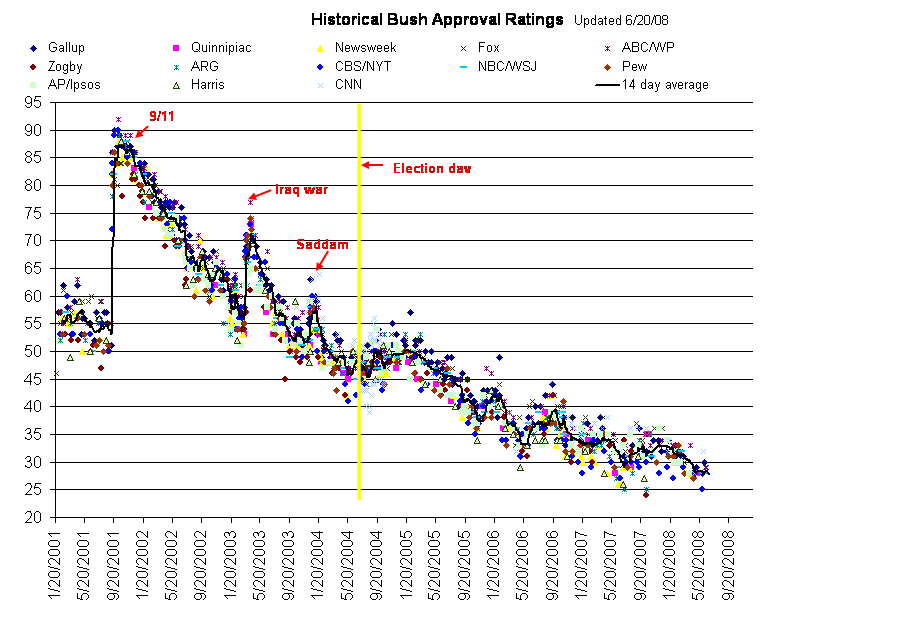Today, let's talk about entitlement reform.
So what is it? Yahoo! Answers has this:
Entitlements are like government handouts..Welfare, Medicare, and social security are all considered entitlements. The entitlements make up about 56% of the federal budget, so most conservatives believe that they should be reformed.. like raising the age to claim Social security.So as one would suspect, they have to do with spending initiatives.
With the deficit crisis, entitlement reform has been in the news a lot lately. The cost of a lot of these programs are spiraling out of control and making it hard to control the deficit. Some legislators believe that these costs must be controlled in order to give our country a chance at financial survival.
Let's start at the top with Obama:
"There have been times when our side, when Democrats aren’t always as flexible as we need to be," Obama said. "Sometimes I do get frustrated when I hear folks say, 'You can't make any changes to any government programs.' Well, that can't be right."This isn't a soft issue. This is something that is going to challenge many people's political ideologies and go against what they stand for. Obama has been a champion of liberal doctrine, but he understands that this is a growing issue:
"We will not be able to sustain that program no matter how much taxes go up," he said in late July. "I mean, it's not an option for us to just sit by and do nothing."You cannot keep raising taxes to make these things happen. You're taking away the competitiveness of the country if you're taking everything from people and giving it back in the form of entitlements.
These entitlements are a cost driver and are one of the main reasons that the US recently had it's credit downgraded:
"The key thing is, yes, entitlement reform is important because entitlements are the biggest component of spending, and the part of spending where the cost pressures are greatest," Beers said.So the people responsible for downgrading our debt are cognizant of the fact that entitlements are going to continue to be an issue going forward.
So what's the significance of this?
Well, the debt crisis has created uncertainty and volatility in the markets. There are worries about a potential default in the future. Companies aren't hiring. Much of the problems associated with economic worry are tied to growing debt problems, so tackling and controlling entitlements are going to be one of the top issues of the next election. While the economy will most likely be the top issue, one of the paths to bettering the economy should come through reducing the deficit and reducing uncertainty.
Paul Ryan has been one of the most outspoken politicians on entitlement reform:
Ryan added that he's willing to discuss tax reforms in a way that would promote economic growth and job creation, including addressing "special interest-driven loopholes," but qualified any reforms by adding, "if you're just raising revenues to chase ever high spending, that's not good policy."Wall Street agrees:
Ryan said ultimately the U.S. has to fix its entitlement system.
"The president just created two brand new health care entitlements, expanded Medicaid, a third, and then put this new rationing board in charge of Medicare," Ryan told "Fox News Sunday." "So they're unwilling to open up and restructure these entitlements, which according to S&P are the primary drivers of this debt."
Bill Miller of Legg Mason Capital Management, who appeared with Ryan, said the markets are looking to see a "reduction in uncertainty," which means both fundamental tax reform and changes to the entitlement structure.The debt crisis is a top down concern for the markets and for the economy. If we address this debt crisis through entitlement reform, we can help ensure the fiscal safety of our country and work towards suring up our markets' confidence.
"Discretionary spending doesn't matter at all in this thing except that it'll be a little bit of a drag on the economy. It's pro-growth policies and fundamental entitlement reform, especially on health care, that are the key things for to our long-term fiscal health and therefore the long-term confidence in the markets toward our country," Miller said.
So while the election will focus on the economy, entitlement reform should come up. Ryan is one of the most outspoken politicians on entitlement reform and if he decides to run, I will surely profile him. Regardless, his Path to Prosperity will be a topic of discussion.
The question is whether the rest of the candidates take his cue and make it a primary talking point or they try to focus solely on the economy without tackling the debt issue, attacking each others' records and Obama's record. In the meantime, it will be interesting to see if Obama follows through on what he has already said. If he does make the move and extend his hand to implement entitlement reform, will that give him a leg up in the race? These questions will be answered in the weeks or months to come.



